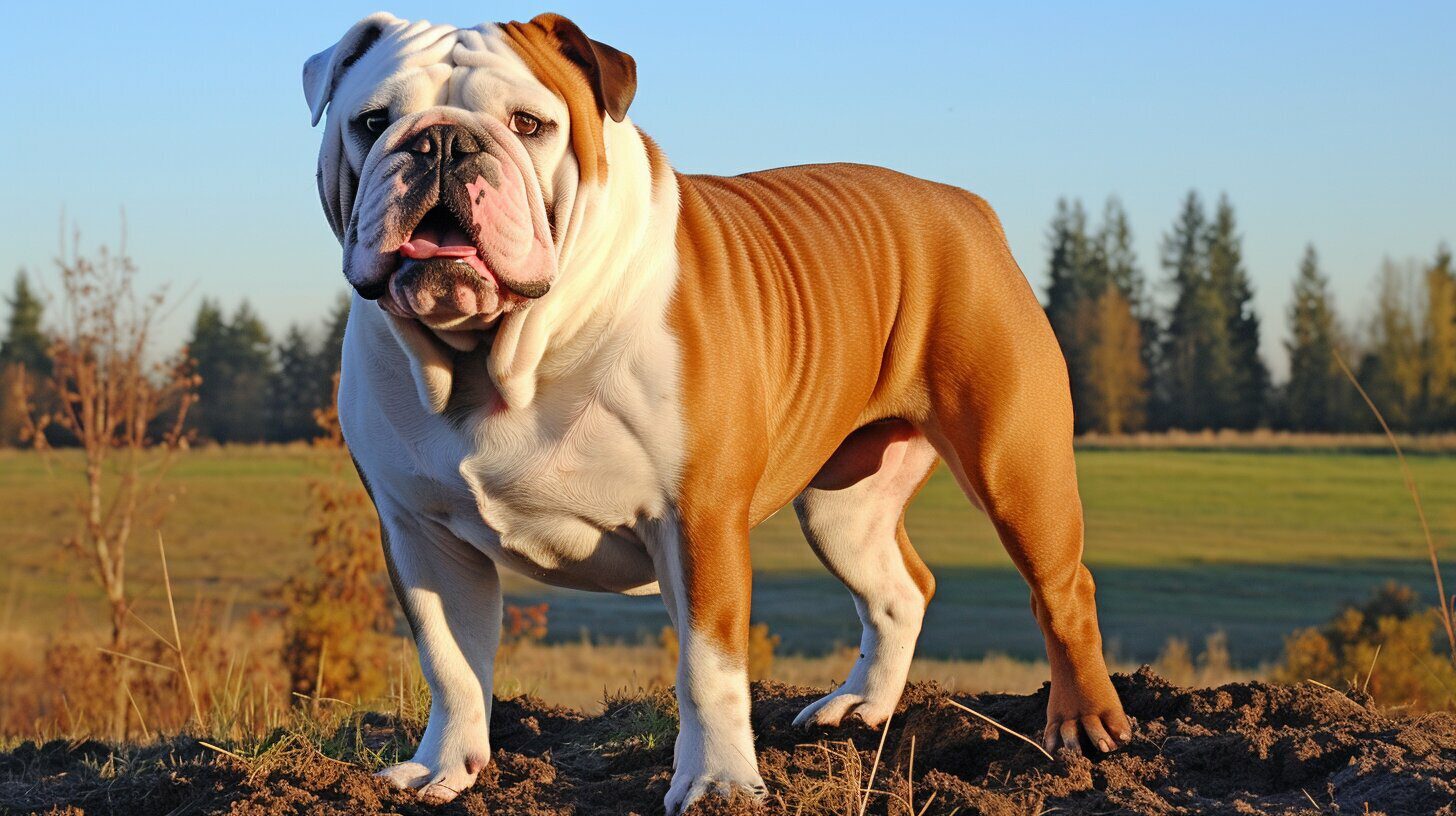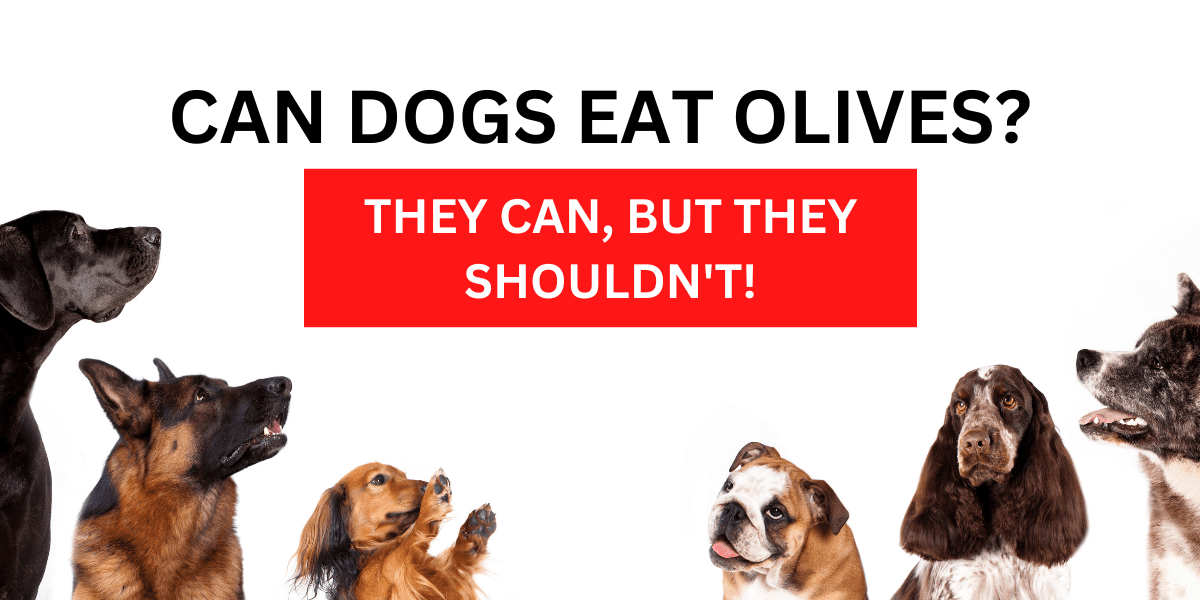
As a dog owner, have you ever wanted to offer your pup a special treat you enjoy eating? It may seem counterintuitive, but many wonders if dogs can safely enjoy olives as part of their diet. This blog post will explore the risks and benefits of feeding olives to your furry friend. Read on to discover everything you need to know about whether dogs are safe to eat olives.
Can Dogs Eat Olives?
Yes, dogs can eat olives. Plain olives are generally considered perfectly safe for dogs to eat in small amounts. However, it is important to remember that olives are high in sodium and may not be suitable for all dogs, especially those with certain health conditions or sensitivities. Therefore, it is always best to consult a veterinarian before giving your dog any new food, including olives.
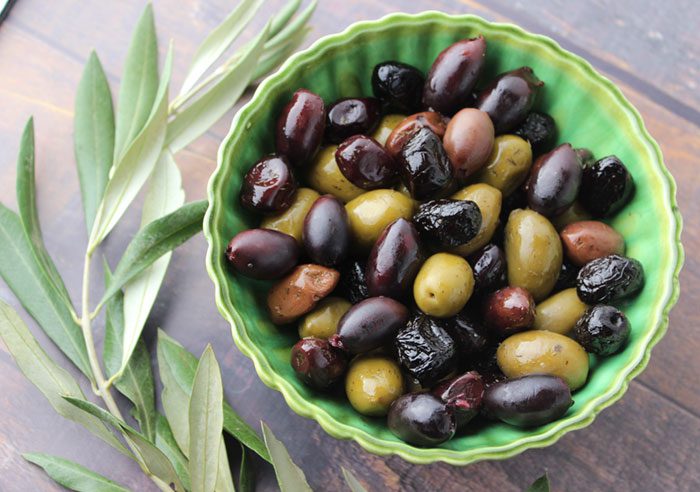
What Happens When a Dog Eats Olives?
If a dog eats olives, the effects may vary depending on the specific type of olives, the amount consumed, and the size and health of the dog. Sometimes, after consuming olives, a dog may experience gastrointestinal upset such as vomiting or diarrhea.
If a dog eats many olives or stuffed olives with toxic ingredients, it could lead to more severe health problems. Therefore, monitoring your dog closely if you suspect they have eaten olives is important, and contact a veterinarian if you notice any unusual symptoms or behavior.
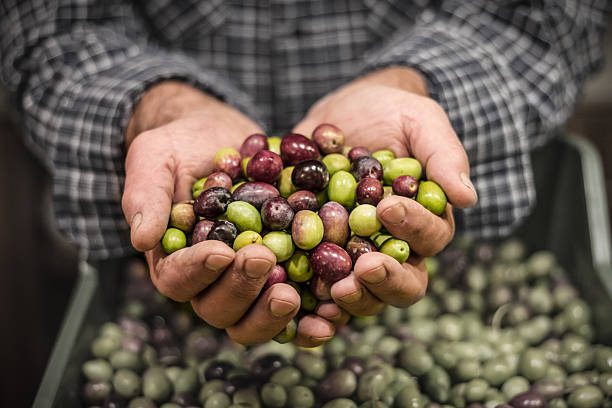
What Are Olives?
Olives are small fruit that has been a critical ingredient in the Mediterranean diet for centuries. The fruit is native to the Middle East, and there is evidence that olives were consumed as early as 4,000 BCE by the Ancient Egyptians, Greeks, and Romans. They were even part of some religious ceremonies since olives were seen as a symbol of peace and prosperity. Today, olives are cultivated worldwide and regularly appear on grocery store shelves.
Olives vary in size, shape, and color. Some olives have a classic round shape, while others are oval or elongated. In addition, they can range from bright green to deep purple or almost black. The texture of olives is typically firm and somewhat dry when ripe, though the degree of firmness can vary by variety. Depending on the recipe they are used in, they may also be brined or preserved in oil or pickled.
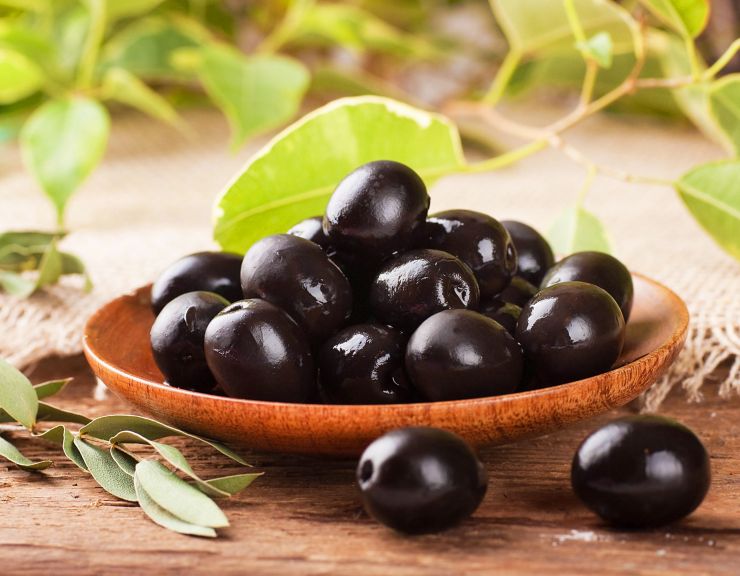
Are Olives Bad for Dogs?
#1 Olives are bad for dogs because they are high in sodium, which can harm dogs if consumed in large quantities. A much lower amount of sodium is required in a dog’s diet than humans, and consuming too much salt and sodium can lead to dehydration, electrolyte imbalances, and other dog’s health problems. Olive oil is made from olives and contains too much sodium.
#2 Dogs can choke on olive stones if they are not adequately removed from the olives before being consumed. This can be a severe hazard to dogs, as the stones can become stuck in their throat or digestive system, causing blockages and requiring medical attention to remove them.
#3 Olives can be stuffed with all sorts of things, including ingredients that are toxic to dogs. For example, some olives are stuffed with garlic or onions, which can poison dogs. Always check the ingredients of any food you give to your dog, and be careful not to provide them with anything containing toxic ingredients.
#4 It is generally not a good idea to let dogs eat green olives (or any food) past the sell-by date. Foods past their expiration date can become spoiled and potentially harmful to dogs (and humans). Therefore, it is always best to check the expiration date of any food before giving it to your dog and discard any food past its expiration date.
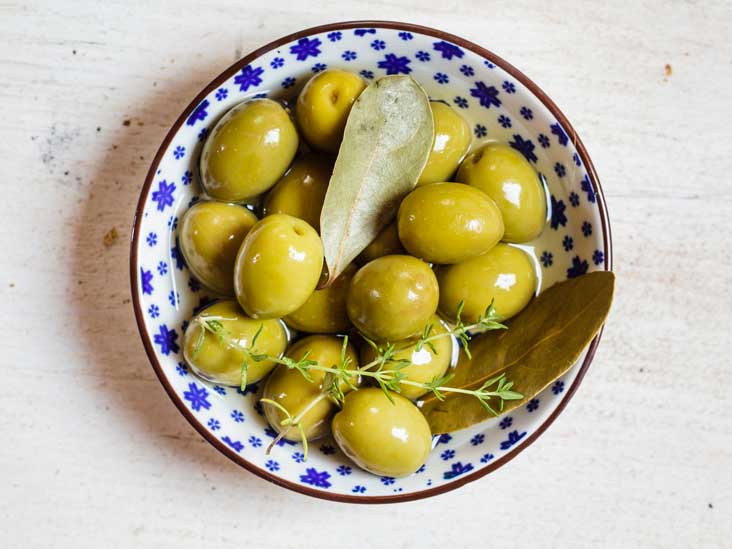
Can Dogs Eat Black Olives?
Are olives good for dogs? Generally speaking, it is not recommended for dogs to consume black olives due to their high sodium content. Black olives can also cause gastrointestinal upset in pets, so it may be best to avoid feeding them to your dog. However, if you must provide your pup with a few black olives, ensure they are pitted and remove any olive pits before offering them as a snack.
What About Green Olives With Pimentos?
Can dogs eat green olives with pimentos? Green olives stuffed with pimentos are often a tasty snack or garnish. Dogs can eat these olives in small amounts without any issue, but it’s still important to ensure they are pitted and remove any pits before offering them as a snack.
Can Dogs Eat Kalamata Olives?
Can dogs eat olives like Kalamata? Kalamata olives are an excellent source of healthy fats, vitamin E, and minerals. However, like other olives, green olives should be given to dogs in moderation due to their high sodium content. Make sure that any olives you feed your pup are pitted and free of pits before offering them as a treat.
What About Stuffed Olives?
Stuffed olives are a delicious snack or garnish that can be enjoyed by people and their pets alike. Although many stuffed olives contain blue cheese, goat or feta cheese and garlic, which may not be suitable for dogs, some use only dog-friendly ingredients. As with all treats, it’s essential to consult your vet before feeding your pup any stuffed olives.
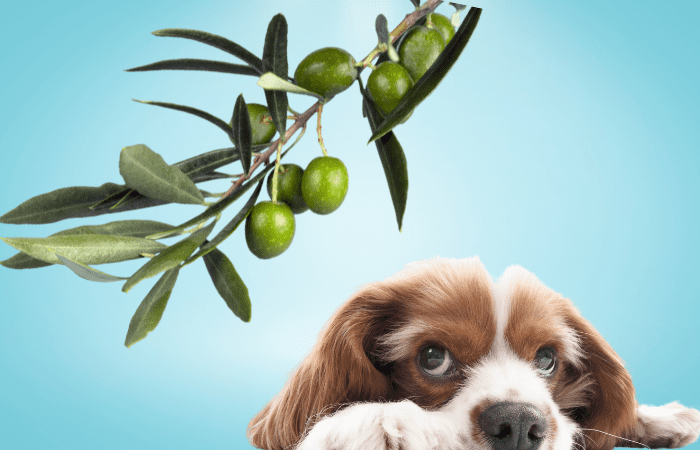
Health Benefits When Feeding Olives to Your Dog
Is olive oil good for dogs? Olive oil is a healthy, natural product that can boost your dog’s immune system in moderation. The omega-3 fatty acids in olive oil help keep your pup’s coat shiny and skin healthy. Olives also contain oleic acid that can help prevent cancer. These fruits are packed with good monounsaturated fats that can help in lowering cholesterol and high blood pressure.
Additionally, the antioxidants found when eating olives can help support overall dog’s health. However, because it is high in fat and calories, it should only be offered to dogs in small amounts and under the supervision of your vet.
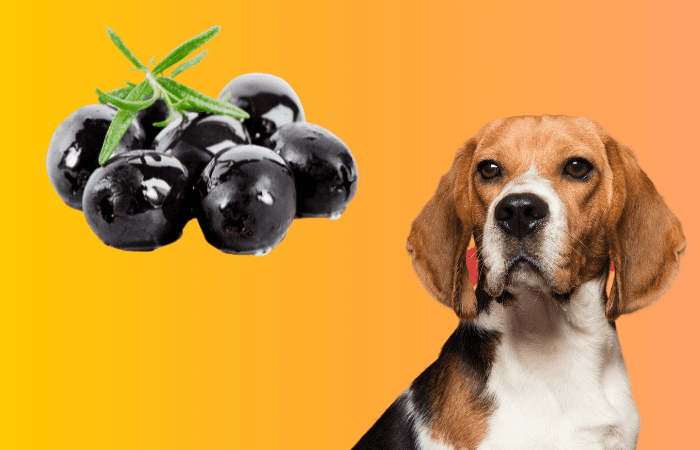
Should I Feed My Dog Olives?
Can dogs eat olives? Yes, but are olives safe for dogs? Fresh olives can be a healthy and tasty treat for some dogs, but they should always be in moderation. Since different olives contain varying amounts of sodium and other ingredients, it’s important to consult your vet before offering olives to your dog. Additionally, some stuffed olives may contain ingredients that are not suitable for dogs, such as garlic or cheese. Read the label to offer your pup a safe and healthy snack.
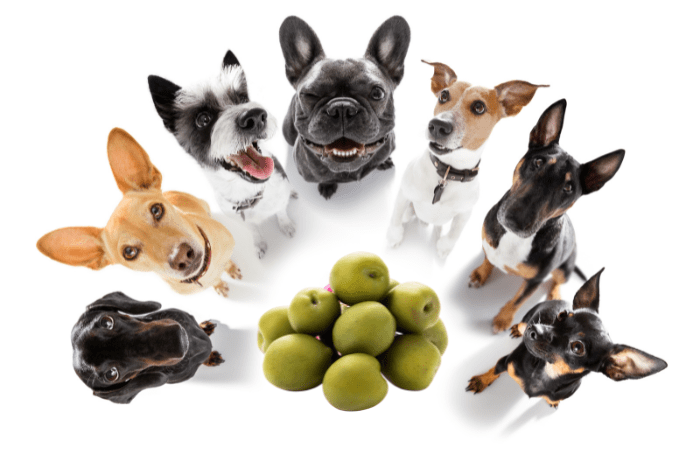
Final Thoughts
Can dogs eat olives? In conclusion, unsalted olives can be a healthy snack for your four legged friend, but you should talk to your vet before giving them to your dog. Olives are high in sodium, so they may not be suitable for specific health conditions. The olive pit should also be removed to avoid choking hazards.
Dogs eat olives as an occasional treat, olives can provide potential nutritional benefits, but other appropriate treats should make up most of your dog’s diet. Be sure to pick options that best suit your dog’s size, age, and health.
Frequently Asked Questions
Are dogs allowed to eat green olives?
Dogs can enjoy olives in their diet as long as they are pitted and not coated in oil. Olives contain several beneficial nutrients for your pup's health and low levels of toxins that can make it a safe food for them to eat.
Can dogs have black and green olives?
Kalamatas, Green & Black Olive, can be a nutritious and tasty treat for your pup - make sure it's ripened, plain, and unsalted! Also, remember that you don't want to make olives a part of your pup's daily diet, as Miller warns against making them the standard of your dog food.
How many olives can dogs eat?
Olive oil can benefit your pet's health, provided the pit is removed beforehand to prevent any potential contaminants from entering its system. Also, if a few olives are given in moderation, they can make a nice treat for your dog.
Can dogs eat olives with pimentos?
Olives can be a great treat for your companion dog - ensure that the only items packed into them are pimentos. Unfortunately, some olives may also contain cheese, garlic oil, onions, or salt, which may not be beneficial for your pup and should be avoided.





